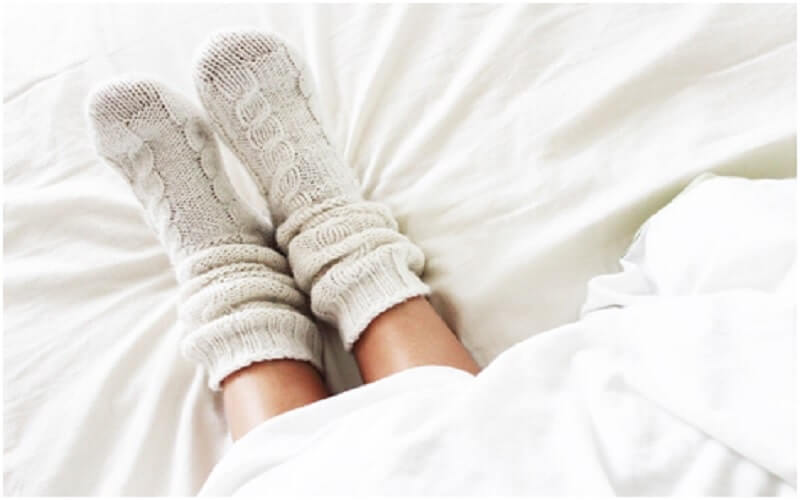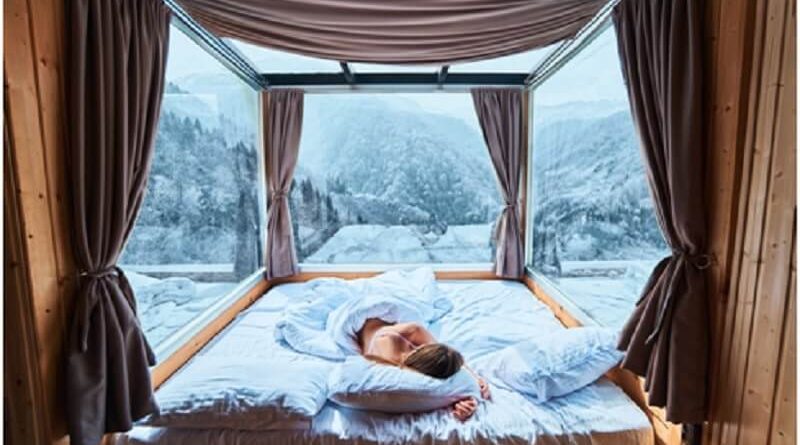As the days get shorter and the temperatures drop, it’s important to ensure you get enough sleep. Although it might be enticing to curl up under a warm blanket and catch up on your favorite show, proper sleep is essential for maintaining your health during winter. So it’s better to hunker down under a nice comforter with comfy bedding pillows.
When you sleep, your body has a chance to rest and repair itself. This is important for keeping your immune system strong, as well as for managing stress levels. In addition, proper sleep can help you stay energized and focused during the day. So if you’re feeling run down this winter, make sure to get plenty of rest. And if you’re having some trouble sleeping through the cold nights, here are some tips to help you get a better night’s sleep:
Invest in a Comfortable Mattress and Pillows
One of the best ways to get great sleep is to make sure you have a comfortable mattress and pillows. If your mattress is over eight years old or lumpy and bumpy, it might be time for an upgrade. And if you’re not sleeping well on your current pillows, it might be time to invest in some new ones. A good mattress and pillows will make all the difference in quickly getting comfortable and falling asleep.
Winter is a great time to shop for mattresses, which can otherwise be costly when you go for good quality—which you absolutely should because the right mattress can last up to 10 years and improve your sleep quality tremendously. And if a brand new mattress isn’t in the cards, but you still want to up your coziness factor, start browsing mattress pads. They’re an excellent option for adding a layer of warmth and comfort without replacing the mattress.
Adjust the Thermostat to a Cooler Temperature
Most people think they need to crank up the heat to stay warm at night, but this is counterproductive if you’re trying to sleep. When your body is too warm, it can be harder to fall asleep and stay asleep. So instead of cranking up the heat, try adjusting your thermostat to a cooler temperature. The National Sleep Foundation recommends between 60 and 67 degrees Fahrenheit is ideal for sleeping.
Remember, you want cool and not cold. Unfortunately, if your bedroom is too cold, it can be harder to sleep. So if you find yourself waking up in the middle of the night shivering, it might be time to turn up the heat a bit. Remember, we’re going for cool and comfortable, not cold and shivery.
Wear Socks to Bed
This may seem insignificant, but wearing socks to bed can make a big difference in how well you sleep. When your feet are warm, your whole body feels warmer, making it easier to fall asleep and stay asleep through the night. So slip on a pair of socks before you climb into bed and see how much better you sleep as a result.

Source: Esmeralda Edenberg/Shutterstock.com
Drink Warm Milk or Herbal Tea Before Bedtime
A warm beverage can make a world of difference in helping you relax and fall asleep. So, before bedtime, try drinking something warm like milk or herbal tea.
Warm milk is a classic because the warmth will help soothe your body and prepare it for sleep. And the combination of proteins and amino acids found in milk can promote feelings of calmness. Herbal teas that you should reach for include chamomile, passionflower, and valerian root. These teas can help your body relax and promote deeper sleep. Plus, the warmth of the tea will fill you with a feeling of coziness that’s perfect for winter.
Avoid Caffeine and Alcohol Before Bedtime
Winter and the holidays are accompanied by a lot of get-togethers and fun times with friends. As a result, we might be tempted to have a couple of cups of coffee after a dinner party or a glass of eggnog before bed. But it’s important to remember that caffeine and alcohol can both disrupt your sleep. Try to avoid these drinks for at least a couple of hours before you plan on sleeping. Caffeine has a half-life of five hours, so keep this in mind when you decide what time you want to tuck yourself into bed.
Add a Humidifier to Your Bedroom
The winter months are often accompanied by dry, cold air. When the air is too dry, it can contribute to sleep disturbances and respiratory issues. One way to counter this is to add a humidifier to your bedroom. This will help keep the air moist and comfortable, allowing you to get more restful sleep throughout the night. Plus, some people find that a cool mist helps them breathe easier — another plus for wintertime sleeping.

Source: New Africa/Shutterstock.com
Establish a Regular Sleep Schedule and Bedtime Routine
It’s pretty easy to lose track of time when it gets dark so early. Unfortunately, this can cause some of us to stay up too late, which means we end up getting less sleep than our bodies need. To counteract this, try to establish a regular bedtime routine and stick with it every night. For example, try meditating for five minutes before bed or reading a few chapters of your current book as part of your routine. Doing the same things in the same order will help signal your body that it’s time to wind down and get ready for sleep.
Last, be sure to turn off all screens at least an hour before you plan on sleeping. The bright light from screens can disrupt our circadian rhythms and interfere with falling asleep quickly. So if you want to snooze quicker come winter, keep your bedroom screen-free.
Final Thoughts
Winter can be a challenging time for getting good sleep. But with the right strategies and tips, you can ensure you’re getting enough restful sleep all season long — even when the days are short and the air is cold. Keep these tips in mind and enjoy cozying up to catch some zzzs this winter.
Source: goffkein.pro/Shutterstock.com









